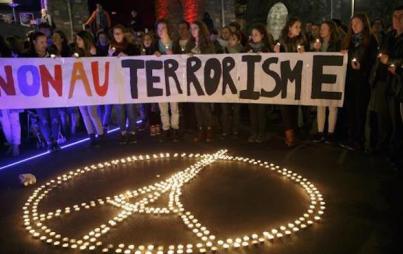
So Iraq is a thing again. While many of us hoped the Middle Eastern country would function well enough for us to (mostly) move on from that whole ill-advised invasion, apparently that is not to be.
The Sunni faction Islamic State in Iraq and the Levant (ISIS)—yet another brutal extremist Muslim faction—is causing all kinds of turmoil in its partial takeover of Northern Iraq (including the alleged murder of some 1,700 captured Iraqi soldiers), and is set to make unlikely bedfellows of the U.S. and Iran.
Here’s a breakdown of the latest (but not least!) crisis to hit the Middle East, according to Iraqi political expert, Kirk Sowell:
So what’s the Sunni beef with the Shia-controlled government?
The Sunnis have lots of different grievances, some which seem legitimate, some not so much. Valid complaints include the plethora of illegal arrests of Sunnis, treatment of these prisoners (which sometimes includes torture and sexual assault), and lack of prosecutorial transparency (which can involve ransom money). The government under Prime Minister Nuri al-Maliki has also increasingly relied on security by Shia militia groups that have little culpability.
Sunnis also call for factional balance in the government. Though certainly reasonable to a degree—the Shia government clearly has gone too far in removing Sunnis from government—Shias seem to call for more than a representative presence. They actually want majority representation, like those good old days of Saddam Hussein, even though they constitute a clear minority of the population.
Do most Sunnis support ISIS?
There are three major factions within Iraqi Sunnis: a Maliki-aligned group (typically people who have been bought off or threatened), the majority anti-Maliki group that functions within the political process, and the insurgency. Sowell says there seem to be a lot of Sunnis on the fence about supporting the insurgency.
But wait—there’s not just one insurgency. There’s a whole slew of insurgent groups! ISIS is the most radical, wanting to instill a jihadist caliphate to rule the country. Other groups are keen on the whole Sunni dictator angle, but prefer a more secular version. And while ISIS seems to have a minority of support among pro-insurgency Sunnis, they are the most organized, the best financed (in part from an extortion racket), and have battle-hardened fighters who have spent years fighting in Iraq and Syria.
Do Sunni insurgent groups have the power to carve out a semi-autonomous state?
Probably not. As noted, Iraqi Sunnis are divided, Shia militias are strong enough to ensure the insurgency doesn’t control an entire region, and the Kurds have control over northern areas with developed oil fields (ding ding ding!), without which the Sunnis would have little dinero.
Who are the winners and losers of this crisis?
Loser number one: The beleaguered Prime Minister Maliki. He was having a tough time with his re-election campaign before, and he will likely have zero credibility now. Shia leaders are no doubt working on a viable replacement.
Sunnis as a group will likely feel his pain. Sowell conjectures they will suffer more than anyone. Viewed as an increasing security threat, Sunnis will probably be cleansed in major Shia-held cities, and Sunni areas within the insurgency could experience “total socio-economic ruin.”
As for the beneficiaries: Kurds are sitting pretty, as the conflict allowed them to solidify control of oil fields in their region. As for Iran? Opinions are mixed. Sowell thinks Shia Iran is set to benefit by more power and influence over the Iraqi government, though others argue the Iraqi clusterfuck could constitute a major headache for Iran.
And as for the United States?
Since the U.S. is uninterested in Iraq destabilization from Sunni extremists, the government has announced its openness to work with arch-enemy Iran against ISIS. So who knows, maybe this latest Iraq fiasco will provide some level of reconciliation between the U.S. and our Persian nemesis.
Then again, we’re still at odds with Iran’s support of Syria’s Shia Assad regime—but that’s another can of worms. The Middle East is truly turning into an absurdly convoluted (dare I say mutually exclusive) tangle of conflict, allies and enemies. Methinks the Department of Defense’s much hoped for “pivot to Asia” isn’t going to happen anytime soon.
Image: ThinkStock






